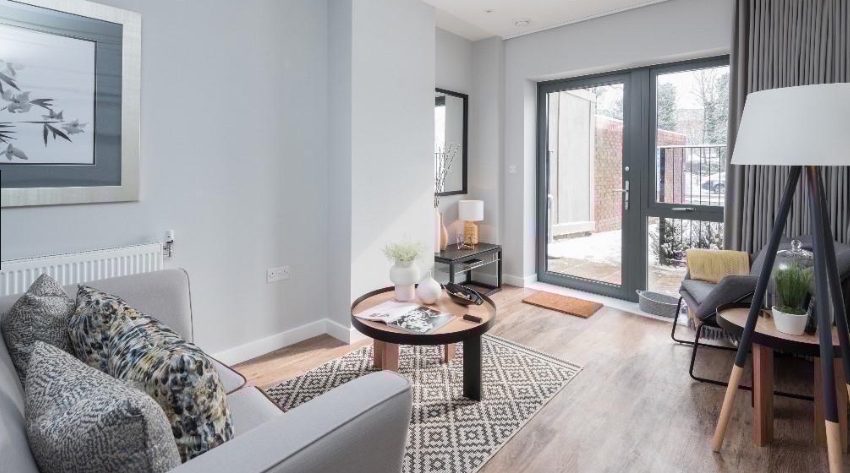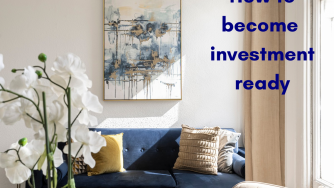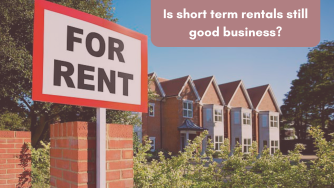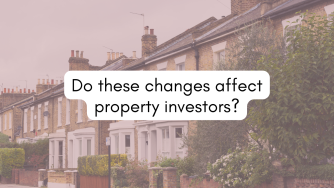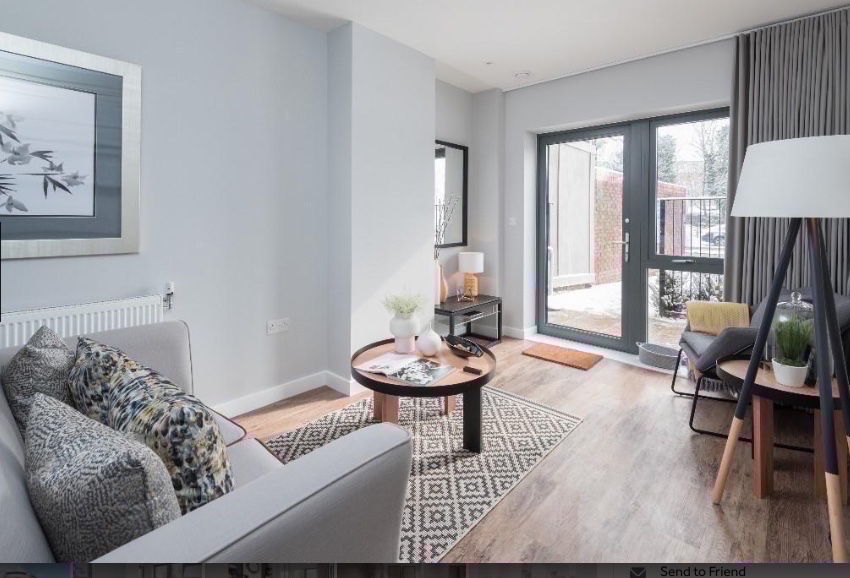
If you’re thinking of buying a property in the United Kingdom, it is vital you read the below before you start the process. The UK offers investors great value on their properties, especially when purchased in the right (gold mine) areas and knowing the order of things to do before you even start will save you a lot of headaches and more importantly help you avoid missing out a good deal because your paperwork wasn’t in order.
The 10 Steps you will want to take:
1) SORT OUT YOUR FINANCES
It is vital that you speak to a Specialist independent broker that can help you source the best mortgage products out there to match your circumstances. This is useful for 2 main reasons:
a) You’ll determine your max budget, your broker can source applicable mortgage products from suitable Lenders and banks which will usually range from 50% – 75% Loan to Value (LTV). This will allow you to work out just how much you will need for the cash portion or equity towards purchasing the property.
b) You will also be better informed about the annual mortgage rates applicable to your own circumstance. This ranges depending on the value of the property from 3% -7% depending on the Lender. It is important to get independent advise on any product you’re offered, so you are certain there are no clauses that can trip you up later, for eg. Product fees, Brokers fees etc. If they are percentage based, they need to be itemised, so you know how much the total cost of financing comes to and what you will really actually be left with after all fees have been deducted. Pay special attention to the Early Repayment Charge which is normally a fee for exiting the mortgage early.
2) TALK TO A LAWYER
Ideally, you will want to speak to at least 3 solicitors and get them to explain the process. This will allow you to know your timelines for getting funds ready but more importantly to get the required paperwork to progress the deal. If you get a great deal, speed is key so it’s good to understand how quickly they work and get their quotations as these can range quite a bit as well.
3) SORT OUT YOUR DOCUMENTATION
This is critical as both your solicitor and Mortgage broker will have an endless list of items they require for you to provide, so speaking to them early will help you start preparing them. Sometimes after speaking to the Broker, you’ll find you need a few months to get your paperwork and your financial standing in order for it to reflect in your accounts. Don’t be misled, getting funding will require “staging your accounts” in a way that the lenders want to see it. Do this early as great property deals don’t typically wait around so it’s better you are ready to move on them as quickly as you can.
4) HIRE A BUYERS AGENT
This is an independent agent (separate from the Agents selling the property) and someone to represent your interests here. Usually, they already know the market, the best agents in the area and can get better deals than you can just going through the major property portals. They are amazing at also negotiating deals and even though their fees can range from 2-3% this can easily be offset by the savings you get from them negotiating on your behalf. They can also point you to other areas to consider that suit your requirements and will usually be impartial in recommending properties offered by the Sellers agents.
5) KNOW THE BUILD TYPES
Knowing the different types of properties and buildings will help you narrow down your search. There are 3 main types of properties you will find in the UK.
a) New Builds – These are the newest buildings you will find, usually ranging from off plan to a few years old and definitely the most popular for overseas buyers or foreign investors. They are usually slightly more expensive as they can come with all the bells and whistles amenities such as concierge, meeting rooms, gym rooms (and sometimes spas). Often, they will be mixed use buildings with grocery stores or restaurants on the ground floor levels and can be remarkably convenient. They are sometimes over priced compared to the other types of buildings in the area as they are in quite high demand.
b) Victorian/Edwardian/Georgian buildings: In other words, the oldest buildings in the UK. They are often full of character and gorgeous charming vintage features which can be modernised to give that wow factor, but they are definitely the oldest styled buildings you will find (exterior). They can be while houses or converted into flats and are very popular with in the UK as they actually hold their value the best. For most overseas investors who are used to newer properties they might not quite work from an aesthetic look. They also never come with concierges 🙂
c) Purpose Built Buildings: These represent building with multiple flats in a block designed originally that way and can be really generous internal room sizes. They tend to value slightly lower than the Victorian properties and can range from 2 floors to 7 floors (Or higher). They can also be ex-council building but no longer have any affiliation to the council.
d) Council Buildings: these are considered social housing and are usually purchased by people who live locally. They have a combination of privately owned and council owned buildings and are the cheapest properties you will find but can’t also be difficult to sell on and might not be suitable for an overseas buyer looking to maximise value. However, I caveat that to say there are areas in London where they represent good value as the prices are considerably lower than the houses around them.
6) KNOW THE TYPE OF LEASES & LENGTHS
With leases, size really does matter; it is very important in the UK to understand the different types of properties, the sort of lease lengths. If the property is Freehold, it means you own the land and the title as opposed to a Leasehold where you own a certain number of years of a separate lease issued to you. Lease lengths can range from 99 years – 125 years on a new lease and occasionally you come by 999 years leases as well.
Please check the existing lease on the property you’re buying. If it falls below 89 years, you should be seeking to find out how much it will cost to extend it, especially if you’re planning to hold it for a long time. Please be aware of a concept called Flying Freehold, in principle it sounds amazing that you would find a flat that comes a freehold title instead of a leasehold (meaning you own it outright), but while it has its advantages, a major disadvantage is that most high street lenders will not lend on these type of properties. There are specialist lenders who will though so it’s a good idea to secure a lender before you finalise on an offer with a FREEHOLD FLAT.
7) DO YOUR OWN RESEARCH
You need to be aware of the area, comparable prices, rental levels (even if you don’t initially want to rent). Property investing is a long game and circumstances change so you should be ensuring the key indicators stack up for the property you’re selecting. Access to transport, knowing the sort of neighbours by checking out
https://www.streetcheck.co.uk/ so you know what is a good offer to make.
For anyone looking to buy Newbuild properties, find out the most recently sold prices and compare them to similar spec Victorian conversion properties in the area to see the price differential.
8) KEEP YOUR COOL DURING VIEWINGS
This is a well known tactic by seasoned buyers, no matter how stunning the property is and how blown away you are, or how perfect it is for your requirements, it is important to have that conversation outside of the Sellers or Sellers agents hearing. Remember, you’ll be negotiating the price later down the line, so you want to have some aces to hold on to and if you’ve already shown your keen and excited interest it is more difficult to gain the upper hand in the negotiations. When you put in your offer, always reduce it (within reason) and try to find a valid reason for the reduction as it pertains to you. It might not always work and in fact you want the Sellers to say NO to your first offer otherwise you’ve offered too much!
9) UNDERSTAND TAXES
There are specific tax implications for buying property in the UK, a few of taxes you can incur include Stamp duty, Inheritance tax, Annual tax on Enveloped dwellings (ATED) and Capital gains which you need to consider, but don’t let that dissuade you as there are ways to mitigate against these which can be discussed with Tax specialists. For more information, check out this link that selves into the types of taxes.
10) CONTACT ME
Part of what we offer is we can help you work out the areas that would be suitable, doing the area analysis to find the best value for the budget you have if you’re looking to purchase in the UK. We also provide guidance and valuable referrals to the Agents, Specialist Broker, Lawyers and Tax advisers) who can help you along this journey.
Basically, I’ll hold your hand through this process to make it as seamless as possible.
In my next article, I’ll cover the timelines for buying a property.


